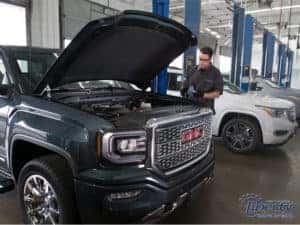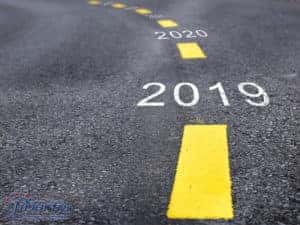
Are you in the market for a new vehicle? Chances are you’ve heard about leasing a car, which has become the mainstream alternative to purchasing a car.
Generally speaking, using a conventional car loan to buy a car means that you borrow from a lender and make monthly payments each month for a certain number of years. Most of each payment goes toward the principal as you build equity, while a remaining portion is reserved for interest. You technically own the car, and you can make any modifications to it that you wish. Once the principal is paid down and your equity is built, you own the car free and clear—meaning your debt to the lender is fulfilled.
When you lease a car, you basically pay the value that the car depreciates, which means your monthly payments are cheaper. However, you never own the car unless you agree to buy it at the end of the lease, which means there are restrictions and potential fees associated with driving the car.
Leasing is becoming increasingly popular among Americans, and in 2018, about 30% of consumers opted to lease a car rather than buy one. Just like renting or purchasing a home, there are advantages and disadvantages either way you go.
LEASING—PROS AND CONS
So, let’s start with the pros and cons involved with leasing a vehicle:
Pros of Leasing
When it comes to upfront costs, leasing a car is significantly less expensive. Since you’re not paying on any principal, the monthly payments are lower than if you were paying a lending company.
 You’re basically borrowing the car, and whatever value the car depreciates while you drive it is what you pay each month (in addition to finance charges).
You’re basically borrowing the car, and whatever value the car depreciates while you drive it is what you pay each month (in addition to finance charges).Lower payments provide the opportunity to drive a newer, nicer vehicle, and driving newer vehicles usually means you will experience less car trouble. Also, since you’re always driving a newer vehicle, it’s likely you will qualify for free maintenance and oil changes under the manufacturer’s warranty.
There are also conveniences with leasing a car. For instance, you don’t have to concern yourself with the vehicle’s trade-in value, especially if you don’t plan on buying it from the dealer after the lease is through. And when the time comes, you don’t have to worry about selling the vehicle, which can be a laborious process. When the lease ends, you simply leave the vehicle with the dealer. Moreover, there may be tax benefits to leasing a car, particularly if you are self-employed or you own a business.
Cons of Leasing
You may see now why leasing is appealing to so many people. However, there are plenty of disadvantages that come with it as well.
In the long run, you will probably end up paying more if you lease a car instead of buying one. This is mainly because vehicles depreciate at such a fast rate. Therefore, if you keep leasing car after car, your monthly payments never end and you never own a car.
There are also restrictions and potential fees to consider when leasing. For example, lease contracts limit the number of miles you can put on the vehicle. Sure, you can go over that limit, but you will pay anywhere between 10 cents and 50 cents for every extra mile. And if you drive under your mileage limit, those miles don’t roll over.
Furthermore, you can’t really make any modifications to a vehicle you lease. Some dealers will agree to professional window tinting and maybe a few other exceptions. For the most part, however, you’re expected to return the vehicle stock. Technically, you can make modifications as long as you undo them before bringing the vehicle back. But if you decide to remove that emblem or badge, and it leaves a blemish when you put it back on, you could face some hefty fees.
Modifications aside, you have to return the vehicle in good condition. If the vehicle has excessive dings and scratches—anything beyond normal wear and tear—you can expect to pay additional fees. And those who decide to terminate their lease before the contract ends will face significant charges.
The Bottom Line
Leasing a car is cheaper up front, which means you can drive a more expensive car than you could otherwise afford. Also, leasing often comes with free maintenance, and it’s a fairly straightforward process—you use the car and bring it back, without having to worry about selling it. However, leasing costs more money long-term, and there are a lot of restrictions and fees to consider.
BUYING — PROS AND CONS
By now you probably have a decent idea of some of the pros and cons involved with buying a car, but let’s expand on them a little bit:
Pros of Buying
Over time, buying a car is a better investment because you’re paying to own the car. The longer you drive a vehicle after it’s paid off, the more value you get out of it. So, in the grand scheme of things, the least expensive way to drive a vehicle is to buy one and drive it until it quits.
Also, when you buy a vehicle, there are no additional fees or penalties to worry about. You can make modifications to the vehicle, and you can drive it as much as you want. Plus, you always have the option of selling the car, or you can even trade it in to lower the price of your next car.
Cons of Buying
Though you’re working toward owning a car outright when you purchase it, you still have steeper monthly payments, since you’re paying both principal and interest. And in order to avoid owing more than the vehicle is worth (going upside down in the loan), your down payment will usually be significantly higher. Plus, a manufacturer warranty typically lasts about three years, and you are responsible for all repair and maintenance costs after that.
Additionally, the flexibility to trade-in or sell your vehicle whenever you want is nice. However, neither of these is an easy task. Each is often a long, drawn-out process that can be stressful if not overwhelming.
The Bottom Line
If you’re focused on the long-term, buying a car is your best option. Not only is it cheaper, but you won’t have to deal with the restrictions and penalties that come with leasing a car. Also, you have the flexibility to trade-in or sell your vehicle whenever you want. However, your monthly payments will be higher, you’ll have to pay for maintenance and repairs, and trading-in or selling the vehicle is often tedious.
WHY THE TIME OF YEAR MATTERS
If you’re considering leasing a vehicle, it’s important to understand that when you lease the car can make a difference in how much you pay. Similar to purchasing a car, there are specific times of the year when you can get good deals on a lease.

A lot of dealerships have targets and bonuses for making a certain number of sales by the end of each month and year. So, if you walk into a dealership at the end of the month, there’s a good chance that someone will lower the price to sell a lease in order to hit their target for the month. Your chances are even better if you go in for a lease as the year is coming to a close, because more employees are likely to be scrambling to hit a milestone so they can receive their year-end bonuses.
Another common time of year to get good deals is during model changes. Manufacturers often release their new models in late summer or early fall, and if you’re fine with driving last year’s model, you may be able to get a great lease deal when the newer models hit the market. This is primarily because dealerships are eager to make room for the new models, meaning they are more likely to offer lease incentives on the older ones.
Then there are the holiday sales, which you’ve probably seen advertised on TV. Particularly around Christmas, Memorial Day, Independence Day, and Labor Day, you can often score some deep discounts on a lease. However, be sure to look at the fine print, because these promotions often come with stipulations.
Finally, you can also get lucky if a dealership is experiencing slow business or is having trouble selling a specific model. In sum, try to shop for a lease at the end of the month or year, during a holiday promotion, or when business appears to be slow.
IF YOU DECIDE TO LEASE
If leasing sounds like the right thing for your situation, make sure you understand how it works before you walk into the dealership.
To gauge your probability of being approved for a lease, check your credit score with one of three major credit bureaus (Experian, TransUnion, Equifax). If you want to be extra thorough, get a report from all three, and make sure any inconsistencies are sorted out. Some leasing companies will only approve customers with a 700 or higher. Even if you get approved with a lower credit score, however, your interest rates are likely to be higher.
Also, go through your budget to determine how much you can afford for monthly payments. Generally speaking, you never want your lease payment to exceed 15% of your monthly net pay. And you will also need to factor in costs like insurance and gas.
IF YOU DECIDE TO BUY
As with leasing a car, you will need to determine your budget before buying a car. Follow the 15% rule for your car loan, and be sure to consider additional costs like insurance, gas, sales tax, vehicle registration, routine maintenance, and unexpected repairs. Determine a number for how much you can spend on a vehicle, and consider purchasing one that’s a little less expensive than that number.
Unless you know the exact model you want, research different vehicles to find a few that could meet your needs. Along with learning more information about models you’re interested in, you can look at MSRPs and see how much they’re going for at different dealerships. That way, you can estimate a fair price and set your limit on what you’re willing to spend when you’re negotiating with dealers.
Once you’ve done your research, call a dealership to set up a test drive. Research is important, but actually getting behind the wheel is often what convinces a buyer whether that particular vehicle is the one or not. After a test drive, you’ll be ready to talk prices, start the trade-in/sale process of your current vehicle, close the deal, and drive off in your new ride!
Leasing and buying a vehicle both have their pros and cons. If cheaper monthly payments and driving a new car every few years is the most important thing to you, then leasing is probably your best option. If you care more about making a long-term investment and having no monthly payments one day, then you’re likely better off to purchase a vehicle.
Just make sure you understand the differences between leasing and buying a car, and either way, come up with a plan before you walk into the dealership.
- Alex Watson









